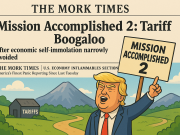In an age where technological advancements and economic shifts are redefining industries at a breakneck pace, the concept of a lifelong career in one field is rapidly becoming antiquated. The Reskilling Revolution is not merely a buzzword; it’s an imperative movement set to arm the current and upcoming workforce with the tools needed to navigate the evolving job landscape. As the digital era flourishes, the gap between the skills workers possess and those demanded by employers widens, leading to an urgent need for widespread, effective reskilling and upskilling initiatives.
The urgency for reskilling is not lost on forward-thinking companies that realize their competitive edge hinges on their workforce’s ability to adapt. By embracing innovative learning and development strategies, these organizations are setting a blueprint for the workforce of tomorrow. Upskilling initiatives that once were periodic have become a continuous journey for employees, ensuring that they remain at the forefront of industry developments.
Technology plays a pivotal role in this learning evolution. From virtual reality and augmented reality to artificial intelligence and machine learning, technology is not only a field to be mastered but also a tool to facilitate diverse and effective learning experiences. E-learning platforms, mobile learning applications, and online courses offer workers the flexibility to learn on their terms, which is essential in a world where work-life balance is constantly being renegotiated.
The success stories of companies with robust learning programs present a compelling case for the replication of these initiatives across various industries. For instance, AT&T’s ambitious reskilling effort ‘Workforce 2020’ is a testament to the potential of a well-structured reskilling program. By identifying the skills of the future and providing its workforce with resources to acquire those skills, AT&T has established a model that many are eager to emulate.
But what does this mean for workers and the broader economy? For one, it allows employees to remain employable and progress in their careers, even as demands shift. For employers, it means retaining valuable staff and reducing the costs associated with high turnover. And for the economy, it fosters an adaptive, skilled workforce that is more resilient to technological and economic disruptions.
However, the Reskilling Revolution brings with it ethical considerations that must be debated. Who bears the responsibility for workforce development? While individuals must take ownership of their continual learning, employers also have a vested interest in cultivating their talent pool. Meanwhile, the government has a role in shaping policies that encourage and sometimes fund these learning initiatives, to ensure that no one is left behind in the rapidly advancing job market.
In conclusion, the Reskilling Revolution is not just about staying relevant; it’s about creating a future where workers are empowered, companies are innovative, and economies are robust. It is a collective journey that requires commitment from individuals, support from employers, and the guidance of policymakers. As we stand at the threshold of a new age of work, the question remains: how will we rise to the challenge of preparing a new generation of workers for tomorrow’s challenges?

























